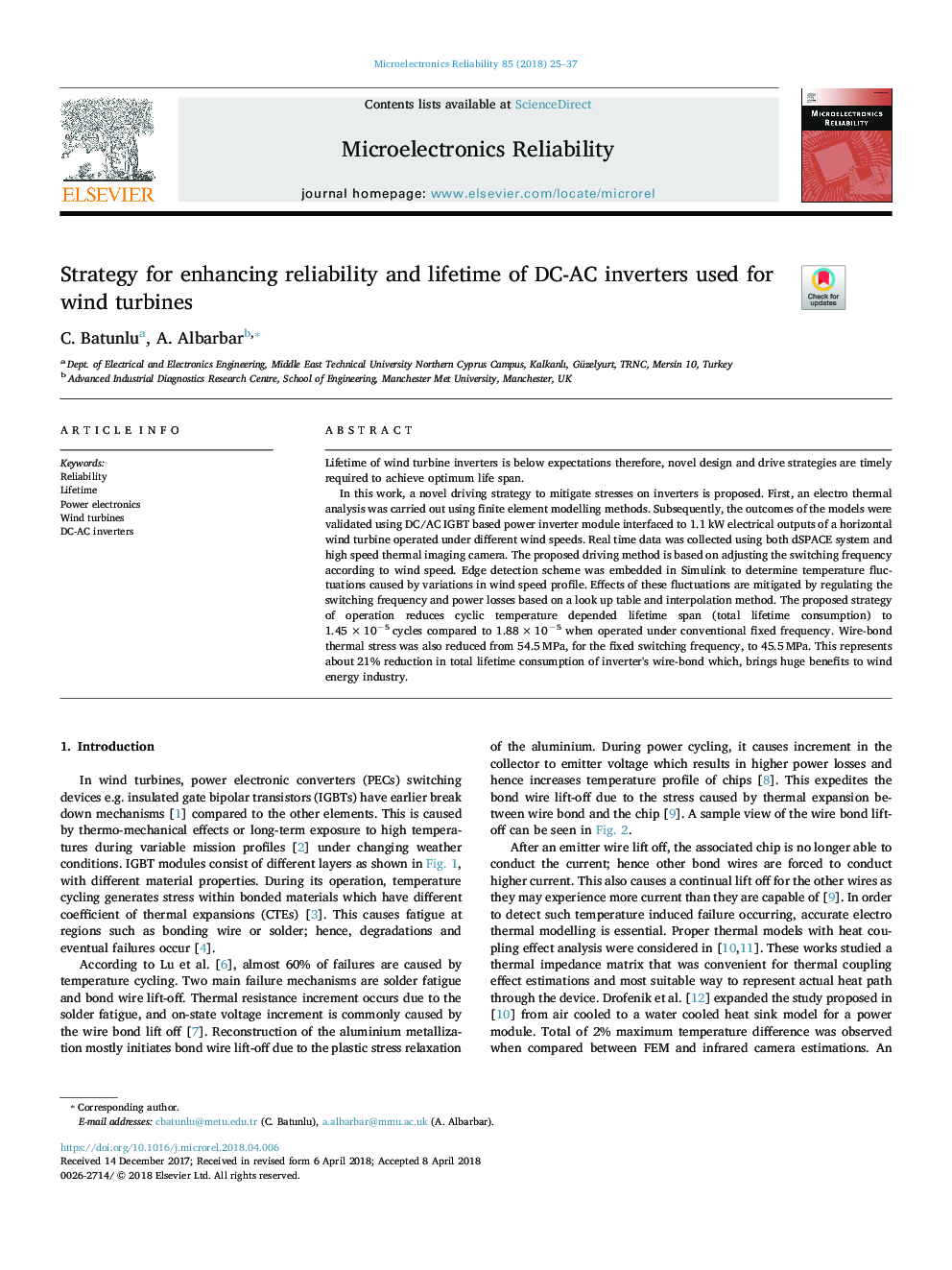| Article ID | Journal | Published Year | Pages | File Type |
|---|---|---|---|---|
| 6945509 | Microelectronics Reliability | 2018 | 13 Pages |
Abstract
In this work, a novel driving strategy to mitigate stresses on inverters is proposed. First, an electro thermal analysis was carried out using finite element modelling methods. Subsequently, the outcomes of the models were validated using DC/AC IGBT based power inverter module interfaced to 1.1â¯kW electrical outputs of a horizontal wind turbine operated under different wind speeds. Real time data was collected using both dSPACE system and high speed thermal imaging camera. The proposed driving method is based on adjusting the switching frequency according to wind speed. Edge detection scheme was embedded in Simulink to determine temperature fluctuations caused by variations in wind speed profile. Effects of these fluctuations are mitigated by regulating the switching frequency and power losses based on a look up table and interpolation method. The proposed strategy of operation reduces cyclic temperature depended lifetime span (total lifetime consumption) to 1.45â¯Ãâ¯10â5â¯cycles compared to 1.88â¯Ãâ¯10â5 when operated under conventional fixed frequency. Wire-bond thermal stress was also reduced from 54.5â¯MPa, for the fixed switching frequency, to 45.5â¯MPa. This represents about 21% reduction in total lifetime consumption of inverter's wire-bond which, brings huge benefits to wind energy industry.
Related Topics
Physical Sciences and Engineering
Computer Science
Hardware and Architecture
Authors
C. Batunlu, A. Albarbar,
